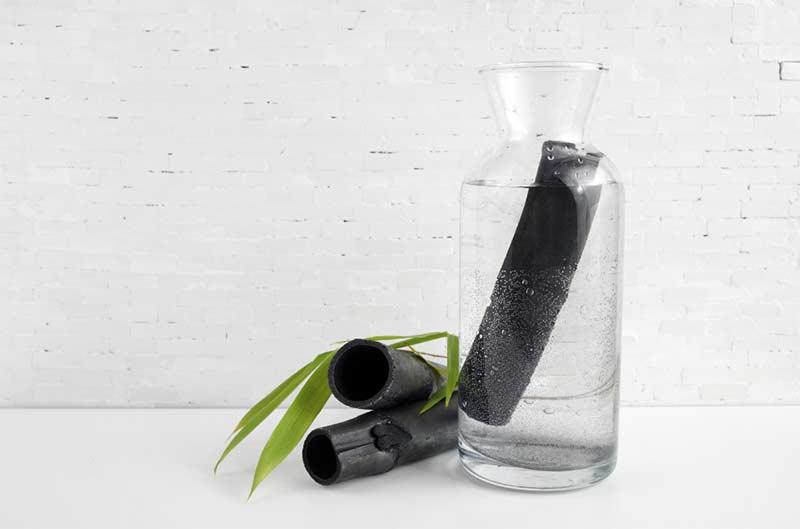Top 5 Eco Friendly Reasons To Use a Water Filter at Home

Water is a primary resource required for normal operations in a household. However, the water quality in the home determines your family's health and the operation of your appliances.
Whether you are getting your water from a well or city water supply, the water contains chemicals and has many chances to become contaminated before reaching your home. Therefore, it is essential to have a water filter, whatever brand, size, or type you prefer.
While the primary benefit of having a water filter is purifying water and protecting you and your loved ones from contamination, they also have numerous environmental benefits.
1. Reduces Landfill Waste
Without a filter, you must look for another way to get clean and safe water. Most of the time that translates to using bottled water. Whatever amount of water you buy, you will end up with so many water bottles in your home or office.
While numerous efforts exist to increase reusability and recyclability, most plastic bottles end up in landfills. However, when you buy Big Berkey water filters, you can drink your tap water without fearing contamination.
Tap water contains many minerals and dirt, which build up around appliances and pipes. That requires regular cleaning, and if you fail to do it, it reduces the appliances' lifespan. That is because the buildup causes the appliances to work harder. It could also result in clogs or blocks that eventually escalate and cause pipe bursts.
That increases the number of broken appliances in landfills. It also results in numerous pipe replacements, and the old plastics end up in landfills. All these products are non-biodegradable, meaning they will sit in the dumps for decades.
A water filter helps remove the chemicals in the water, reducing the chances of buildup and clogs.
2. Reduces Energy And Resource Consumption
The more bottled water you drink, the more bottles the companies need to make. Manufacturing plastics use around five times the energy required to create tap water because it involves processes like heating, cooling, washing, and packaging.
That requires a lot of natural energy, like natural gas and fossil fuel oils, exhausting the reserves. Even the people using electric power contribute to natural resource depletion because it takes water to make electricity.
3. Reduces Carbon Footprint And Preserves Natural Water Sources
Manufacturing water bottles results in numerous fume releases from companies. These fumes usually contain many chemicals that result in air pollution and contribute highly to the greenhouse effect.
Research indicates that around 14% of the total toxic release across the United States is from plastic manufacturing. The most common poisonous chemicals released include acetone, trichloroethane, methyl ethyl ketone, methylene chloride, toluene, styrene, and benzene.
Those chemicals get into the clouds, resulting in acid rain, which ruins the soil, crops, physical structures, and water bodies.
Water bodies also suffer significantly from direct waste disposal from factories. While most of them might not intentionally direct their water into water bodies, most of the solid or liquid waste directed in drainages ends up in rivers.
Over time, those rivers end up in bigger water bodies like lakes or oceans. That kills much marine life and makes the water unusable for other functions.
4. Saves Water
While you might buy bottled water to drink it all, you will mostly end up with remaining water, which you will probably throw out. That might seem like little water at the time, but combining the water you throw out could add up to a massive amount over time.
A water filter ensures you only get the water you will finish from your tap, reducing wastage. Without filtration, the chemicals and minerals in tap water could make it difficult to get clean clothes, prompting you to use more water.
5. Filtered Water Is Good For Plants And Soil
While many people install filters for their benefit, it will also help improve your soil and plant health. Tap water carries chemicals like chlorine and fluoride, added to help make it better for human consumption.
Chlorine helps kill bacteria and germs, while fluoride helps strengthen the enamel. However, they harm the plants, especially in high quantities, and could result in low production or death.
Fluoride causes damaged or browned leaves, especially in palms, spider plants, peace lilies, bamboo, dracaenas, Boston fern, and spineless yucca. Filtering the water helps remove these chemicals, and you can add the nutrients your plant needs through fertilizers.
Conclusion
The type and size of water filter you install depends on your family size, budget, and preferences. You can choose a carbon fiber, reverse osmosis, ultraviolet, mechanical, ion exchange, or activated alumina filters. You can also select a whole house, under sink, shower, or countertop water filter.
While some consider a filter a considerable investment, its benefits will help you save much money in the long run. Ensure you research, compare, and ask for guidance from experts, friends, or family members before choosing a water filter.